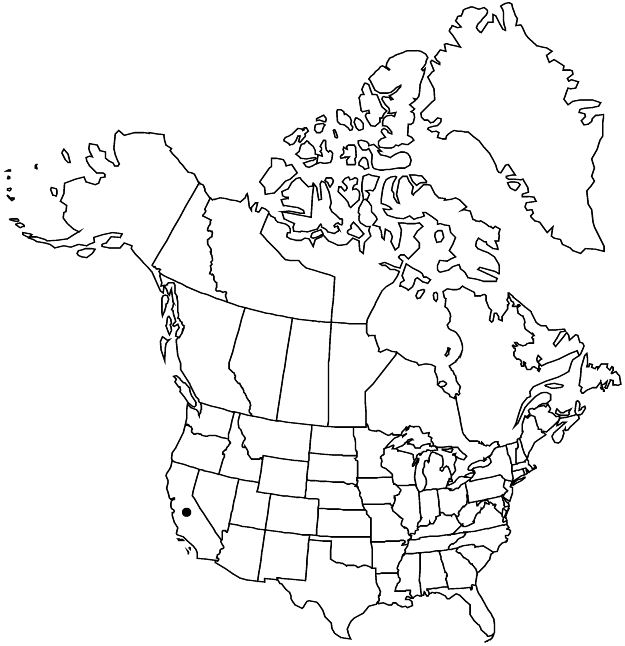Difference between revisions of "Ceanothus prostratus var. occidentalis"
Ceanothus, 262. 1942.
Common names: Cobb Mountain ceanothus
EndemicConservation concern
Synonyms: Ceanothus divergens subsp. occidentalis (McMinn) Abrams
FNA>Volume Importer |
imported>Volume Importer |
||
| Line 58: | Line 58: | ||
|publication year=1942 | |publication year=1942 | ||
|special status=Endemic;Conservation concern | |special status=Endemic;Conservation concern | ||
| − | |source xml=https:// | + | |source xml=https://bibilujan@bitbucket.org/aafc-mbb/fna-data-curation.git/src/bb6b7e3a7de7d3b7888a1ad48c7fd8f5c722d8d6/coarse_grained_fna_xml/V12/V12_1109.xml |
|genus=Ceanothus | |genus=Ceanothus | ||
|subgenus=Ceanothus subg. Cerastes | |subgenus=Ceanothus subg. Cerastes | ||
Revision as of 20:07, 27 May 2020
Shrubs, 0.1–0.3 m, matlike to moundlike. Stems prostrate, spreading, or ascending. Leaf blades slightly folded lengthwise adaxially, margins ± wavy, teeth 5–9. Capsule horns spreading, not conspicuously rugose. 2n = 24.
Phenology: Flowering Apr–May.
Habitat: Gravelly or rocky soils derived from volcanic substrates, open flats and ridges, conifer forests.
Elevation: 800–1400 m.
Discussion
Variety occidentalis is known from only a few localities in the mountains of Lake, Mendocino, Napa, and Sonoma counties. L. Abrams and R. S. Ferris (1923–1960, vol. 3) treated it as part of Ceanothus divergens, based partly on leaf morphology, but its life form and fruit morphology suggest a closer relationship to C. prostratus.
Selected References
None.
Lower Taxa
None.
